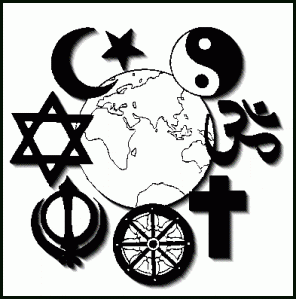It doesn't take long, but before Prince William and Kate Middleton even arrive at Westminster Abbey for their wedding, the cry's of 'get rid of the Monarchy' are echoing around the Country.
This isn't helped by satirical news shows such as 10 O'Clock Live, a 'news' show, shown on Channel 4 every Thursday. This week, David Mitchell tabled the question about the abolishment of the Monarchy and even went so far as to mention shooting them in a cellar. The idea of Mitchell know how to use an automatic weapon is about as realistic of him ever shooting anyone, but the meaning was clear. There were two others around the table that contested that the Monarchy should be abolished, their arguments were so inept I wont even go into detail. There was a time when speaking ill of the Monarchy was treason, but with the current state of Britain, speaking ill of the Monarchy is the least of our problems.
The question of abolishing the Monarchy has been around for years. If you were to ask the current crop of 16-30 year olds if the Monarchy should be abolished, I would guess that the majority of them would say 'yes'. That said, I don't think the majority would be significant, just enough to tip the balance. Even politicians have endorsed the abolishment of the Monarchy, stating that it is outdated and is a drain on the taxpayers.
The stupidity of the people in this country never ceases to amaze me.
For a start, the Monarchy is probably the biggest attraction for visitors to London. There are going to be thousands more for the Royal Wedding, in a few days time. The revenue that this will draw in will be massive and most of it taxable. So while politicians of limited intelligence can spout off about them costing taxpayers, the income from visitors to London and even the UK completely negates their arguments.
However, it's an argument that isn't going away any time soon. There is a significant number of the population that think abolishing the Monarchy would be a good thing and the immediate question is, how well informed are they? I think the majority of these people are either jealous of the Royal Family or have ulterior motives. They would have the UK become a Republic because…? Is it working for the French? There was a famous Englishman who thought the abolishment of the Monarchy would be a good thing, too. His name was Oliver Cromwell. Do you know how that worked out?
What would replace the Monarchy? A presidency? It is common knowledge that our government hangs on the shirt tails of the American's, but do we really need to go that far? Also, who has the right to abolish it? I am not a constitutional expert so I can't answer that question, but it can't be that easy, surely?
Britain should be proud of it's Monarchy. It has been around since King Offa, who was basically a local King who seized the lands of those around him and claimed supremacy over the less Kings. That was around 757 AD. That's quite a lot of history to just dismiss. Our Monarchy built the Empire, the biggest Empire in history, reaching around the globe. The Empire only ended because of World War 2 and the American government's conditions for it's help.
The Monarchy has evolved over the years to become more of a figurehead rather than the rulers they once were. They still symbolise the Commonwealth of Nations and, more importantly, the history of the United Kingdom. Our Royalty is recognised all over the world and there are many countries that envy the UK and the fact that it has a Monarchy that stretches back for centuries.
The Monarchy has come under scrutiny numerous times over it's history and each time it has conceded part of it's power until, now, the Queen is little more than a figurehead. The few perks they had, such as the Royal Yacht, Britannia have been given back because of the complaints that it costs the taxpayers too much. Can you imagine the President of the United States giving up Air Force One?
Yet, to this day, the British Armed Forces swear allegiance to the Queen, not the government. Many of the men and woman that join the Armed Forces are loyal to the Crown yet have different political views and that should be the crux of the matter. No matter what your political view or your ethnicity, we all have one Queen, one Monarch and we should be proud of that fact.
This isn't helped by satirical news shows such as 10 O'Clock Live, a 'news' show, shown on Channel 4 every Thursday. This week, David Mitchell tabled the question about the abolishment of the Monarchy and even went so far as to mention shooting them in a cellar. The idea of Mitchell know how to use an automatic weapon is about as realistic of him ever shooting anyone, but the meaning was clear. There were two others around the table that contested that the Monarchy should be abolished, their arguments were so inept I wont even go into detail. There was a time when speaking ill of the Monarchy was treason, but with the current state of Britain, speaking ill of the Monarchy is the least of our problems.
The question of abolishing the Monarchy has been around for years. If you were to ask the current crop of 16-30 year olds if the Monarchy should be abolished, I would guess that the majority of them would say 'yes'. That said, I don't think the majority would be significant, just enough to tip the balance. Even politicians have endorsed the abolishment of the Monarchy, stating that it is outdated and is a drain on the taxpayers.
The stupidity of the people in this country never ceases to amaze me.
For a start, the Monarchy is probably the biggest attraction for visitors to London. There are going to be thousands more for the Royal Wedding, in a few days time. The revenue that this will draw in will be massive and most of it taxable. So while politicians of limited intelligence can spout off about them costing taxpayers, the income from visitors to London and even the UK completely negates their arguments.
However, it's an argument that isn't going away any time soon. There is a significant number of the population that think abolishing the Monarchy would be a good thing and the immediate question is, how well informed are they? I think the majority of these people are either jealous of the Royal Family or have ulterior motives. They would have the UK become a Republic because…? Is it working for the French? There was a famous Englishman who thought the abolishment of the Monarchy would be a good thing, too. His name was Oliver Cromwell. Do you know how that worked out?
What would replace the Monarchy? A presidency? It is common knowledge that our government hangs on the shirt tails of the American's, but do we really need to go that far? Also, who has the right to abolish it? I am not a constitutional expert so I can't answer that question, but it can't be that easy, surely?
Britain should be proud of it's Monarchy. It has been around since King Offa, who was basically a local King who seized the lands of those around him and claimed supremacy over the less Kings. That was around 757 AD. That's quite a lot of history to just dismiss. Our Monarchy built the Empire, the biggest Empire in history, reaching around the globe. The Empire only ended because of World War 2 and the American government's conditions for it's help.
The Monarchy has evolved over the years to become more of a figurehead rather than the rulers they once were. They still symbolise the Commonwealth of Nations and, more importantly, the history of the United Kingdom. Our Royalty is recognised all over the world and there are many countries that envy the UK and the fact that it has a Monarchy that stretches back for centuries.
The Monarchy has come under scrutiny numerous times over it's history and each time it has conceded part of it's power until, now, the Queen is little more than a figurehead. The few perks they had, such as the Royal Yacht, Britannia have been given back because of the complaints that it costs the taxpayers too much. Can you imagine the President of the United States giving up Air Force One?
Yet, to this day, the British Armed Forces swear allegiance to the Queen, not the government. Many of the men and woman that join the Armed Forces are loyal to the Crown yet have different political views and that should be the crux of the matter. No matter what your political view or your ethnicity, we all have one Queen, one Monarch and we should be proud of that fact.









